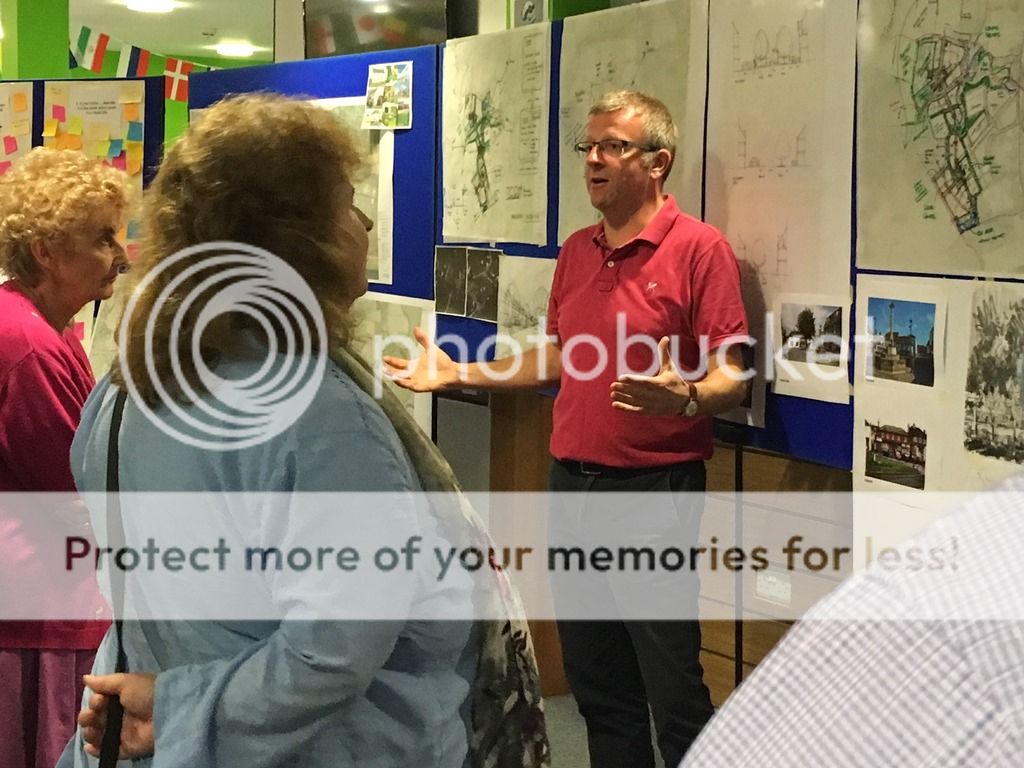The workshop also included Barton Willmore, the developer’s agents, a representative from Wates Developments (one of the developers, alongside Redrow Homes), the Sussex Community Housing Hub (who were promoting the Community Land Trust that has been established to own and run some of the community assets) and members of the Ford Neighbourhood Planning Group. CPRE provided a number of specialist advisors including Phil Belden from the Sussex Wildlife Trust, Chris Todd from the Campaign for Better Transport and Will Anderson from Rabble Place Architects who provided expert advice on some of the specific issues arising. Around 40 residents from Ford and the surrounding areas came to take part in the workshops.
On the first day of the workshops there were a number of roundtable discussions on the following: homes, character and creating places; the heart of Ford; movement and connectivity; the heart of Ford; and, green and blue infrastructure. Discussions were focussed on a series of maps showing the initial proposals for the layout of the site and a list of questions designed to elicit information on key issues relevant to each of the topics. The feedback from the day was then reflected in updated plans and drawings worked up overnight by the design team. On the second day of the workshop the revised proposals were presented with further discussion to make sure that all of the points from the first day had been captured.

Strong views were expressed by the residents that they wanted to see green open spaces within the development alongside wetlands and ponds to provide places of tranquillity and relaxation and to provide an environment within which wildlife can thrive. Overwhelmingly people wanted to create a village with a “heart” – there was much discussion about what would create a good village centre for Ford. Affordable housing will play an important role in the development with residents wanting to see this category of housing fully integrated within the development and generally a good balance of housing to suit all different age groupings with sufficient open spaces to create places for people to meet and relax. People concluded that the development needed to reflect the low density, rural feel of the area.
Our work in Ford is part of Phase 2 of our award - winning Making Places Project. Under Phase 2 we are looking to work closely alongside local communities, such as that of Ford, actively facing development pressures to help them shape the future of their villages or towns. The Ford project has been a unique opportunity for us to work alongside both community and developers. We are also looking for other suitable locations to deploy our Making Places methodology. Our ultimate aim is to draw the conclusions from Phase 2 into a Charter to be launched at a national conference.




